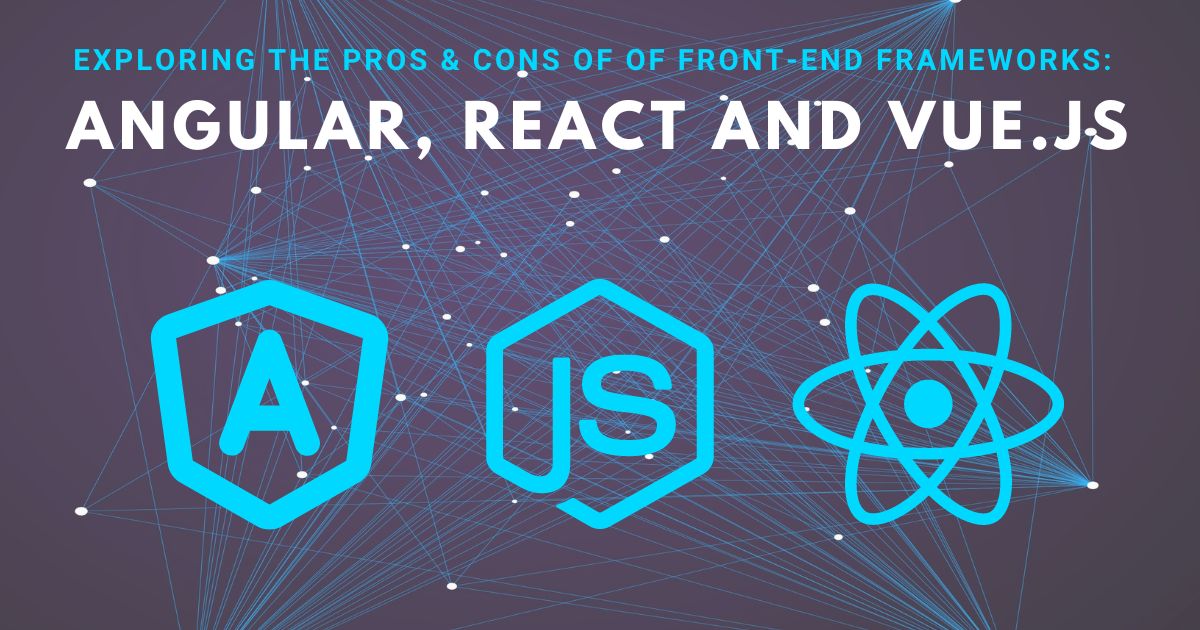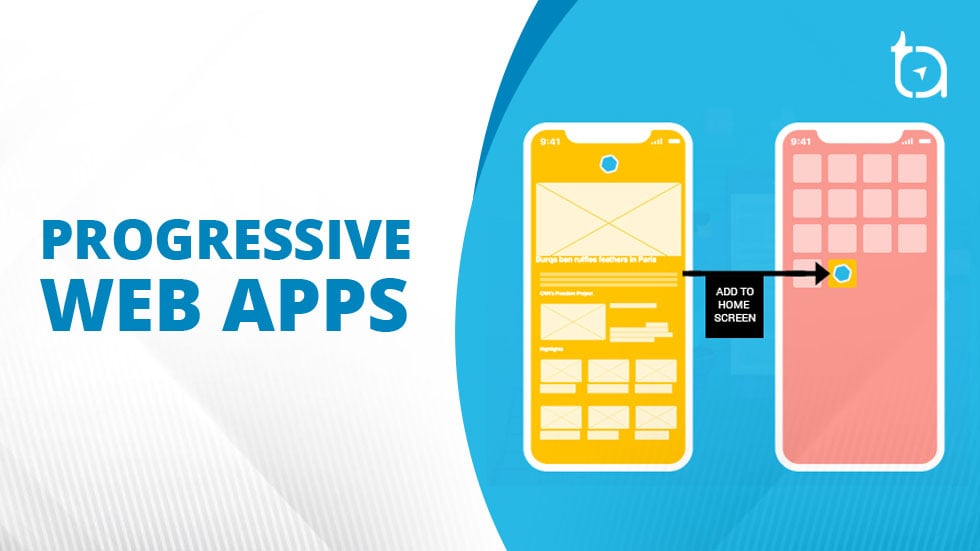The Pros and Cons of Front-End Frameworks: Angular, React vs. Vue.js
.jpg?width=1200&height=630&name=The%20Impact%20of%20Technology%20on%20the%20California%20Real%20Estate%20Industry%20(2).jpg) Front-end development has evolved significantly in recent years, with the emergence of powerful JavaScript frameworks and libraries that have revolutionized the way web applications are built. Among these, Angular, React, and Vue.js stand out as the most popular choices for web developers. In this article, we'll explore the pros and cons of each of these front-end frameworks to help you make an informed choice when it comes to building your next web application. If you're in Paramus, New Jersey, looking for the best web development company or web developers, understanding these frameworks can help you make the right decision for your project.
Front-end development has evolved significantly in recent years, with the emergence of powerful JavaScript frameworks and libraries that have revolutionized the way web applications are built. Among these, Angular, React, and Vue.js stand out as the most popular choices for web developers. In this article, we'll explore the pros and cons of each of these front-end frameworks to help you make an informed choice when it comes to building your next web application. If you're in Paramus, New Jersey, looking for the best web development company or web developers, understanding these frameworks can help you make the right decision for your project.
Angular:
Angular, developed and maintained by Google, is a comprehensive and opinionated front-end framework that offers a robust set of tools for building complex web applications. Here are some of its pros and cons:
Pros:
- Full-featured: Angular provides a complete solution for building web applications, including routing, state management, and dependency injection. This makes it suitable for large-scale projects with complex requirements.
- TypeScript: Angular is built using TypeScript, a statically-typed superset of JavaScript. This provides enhanced tooling, code maintainability, and improved error detection, making it a great choice for teams working on large projects.
- Strong Community: Angular has a large and active community of developers, which means there are plenty of resources, libraries, and third-party integrations available. This can help streamline development and troubleshooting.
- Official Support: Being backed by Google, Angular enjoys strong official support and regular updates, ensuring it stays up-to-date with the latest web development trends and best practices.
Cons:
- Steep Learning Curve: Angular's comprehensive nature can make it challenging for newcomers to learn. The framework introduces its own concepts and terminologies, which might require more time to grasp.
- Verbose Code: Angular's code can be more verbose compared to other frameworks, which may lead to longer development times and potentially more opportunities for bugs to creep in.
- Performance: While Angular is performant, it may not be as lightweight as some other options, potentially leading to slower initial load times for applications.
React:
React, developed and maintained by Facebook, is a popular JavaScript library for building user interfaces. It's known for its component-based architecture and virtual DOM. Here are its pros and cons:
Pros:
- Component-Based: React's component-based approach promotes code reusability, making it easier to maintain and scale applications. Developers can also take advantage of a vast ecosystem of third-party components and libraries.
- Virtual DOM: React uses a virtual DOM to efficiently update the actual DOM, resulting in improved performance and a smoother user experience.
- Unopinionated: React is relatively unopinionated, allowing developers to choose the best tools and libraries for routing, state management, and other needs. This flexibility can be a significant advantage.
- Large Community: React has a massive and active community, leading to a wealth of resources, tutorials, and open-source projects that simplify development.
Cons:
- Learning Curve: While React itself is relatively easy to learn, setting up a full development environment with tools like Webpack and Babel can be intimidating for beginners.
- Lack of Official State Management: React doesn't provide built-in state management, so developers often need to choose external libraries like Redux or MobX, which can add complexity to the project.
Vue.js:
Vue.js, created by Evan You, is a progressive JavaScript framework for building user interfaces. It aims to be approachable and flexible for developers. Here are its pros and cons:
Pros:
- Approachable: Vue.js is known for its gentle learning curve, making it an excellent choice for beginners or developers looking to pick up a new framework quickly.
- Single-File Components: Vue.js allows developers to encapsulate HTML, CSS, and JavaScript in a single file, promoting code organization and maintainability.
- Reactivity: Vue.js offers a simple and powerful reactivity system that makes it easy to manage and update the application's state.
- Official Tooling: Vue.js provides official tools like Vue CLI and Vue Devtools, which streamline development and debugging processes.
Cons:
- Smaller Ecosystem: While Vue.js has been growing steadily, its ecosystem is still smaller compared to React and Angular. This can limit the availability of third-party components and libraries.
- Limited Corporate Backing: Vue.js lacks the backing of a tech giant like Google or Facebook, which may lead to concerns about long-term support and updates.
In conclusion, the choice between Angular, React, and Vue.js ultimately depends on your project's specific requirements and your team's expertise. Angular is well-suited for large-scale applications with a strong team of developers, React offers flexibility and a vast ecosystem, while Vue.js is an excellent choice for small to medium-sized projects with a focus on ease of use.
If you're in Paramus, New Jersey, looking for the best web development company or web developers to help you choose and implement the right front-end framework for your project, consider reaching out to local experts like Arya57 who can guide you through the decision-making process and provide top-notch development services. Understanding the pros and cons of these front-end frameworks is a crucial step in making the right choice for your web development needs.




Submit Your Comment